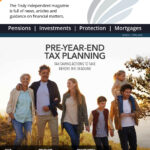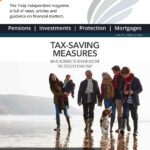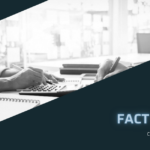Pandemic threatens pushing over-50s into pension poverty and throws retirement plans into jeopardy.
More than half (53%) of people in their 50s fear running out of money in retirement, as they have been the most likely to face job and income losses of any age group during the coronavirus (COVID-19) pandemic (23%), according to a new report.
Finances Impacted
The number of those over age 55 dipping into their pension early has increased this year, as some have struggled to pay for essentials during the pandemic. The report reveals that one in three people in their 50s (37%) have seen their finances impacted during the pandemic, more than any other age group. Faced with job losses and their pension contributions falling or stopping altogether, 13% now believe they will never be able to afford to give up work.
To tide them over, an increasing number of over-55s have been taking advantage of pension freedoms and accessing their retirement savings early. In the first three months of 2021 alone, 383,000 people withdrew money from their pension – a 10% jump on the same period last year.
Company Scheme
As well as putting their retirement plans in jeopardy, some people may face an unexpected Income Tax bill if they continue saving into a pension after they have withdrawn money from a pension. This could happen for anyone made redundant who then re-joins the workforce and is enrolled into the company scheme.
Current rules state that savers can put £40,000 into their pension each year (including employee and employer contributions) and receive tax relief on these savings. Basic rate taxpayers receive 20% pension tax relief and higher rate taxpayers 40% pension tax relief.
Living Costs
However, once someone accesses their pension, no matter how small the amount they take out, Money Purchase Annual Allowance (MPAA) rules mean the amount they can save in a year and still obtain tax relief falls significantly to just £4,000 per year. Anything they pay in over this limit will attract a bill from the taxman.
The later middle-aged have not enjoyed the ‘offsetting’ benefits of the pandemic – such as a cut on commuting costs and reduced leisure activity costs – that other age groups have, with only one in six (16%) reporting a decrease in living costs compared to a quarter (25%) of those in their 20s.
At the same time, one in five workers (17%) in their 50s are self-employed, compared to only 12% of 25-49 year old’s.
Challenging Time
With less job security, a lower income on average and well-publicised issues accessing government support, COVID-19 has made it a challenging time to be self-employed. More than half of people who work for themselves have seen their finances suffer, compared to 25% of permanent employees.
While we’re right to be worried about the lasting impact of this pandemic on all age groups, those in their 50s need to act urgently to get their savings back on track before retirement, having been forced to use their existing savings just to get by.
What stage of retirement are you at?
We all have our own idea of the life we’d like to lead after we’ve left the 9 to 5 behind. Whatever your vision we’re here to talk you through your options. To speak to one of our advisers click here.










Follow us